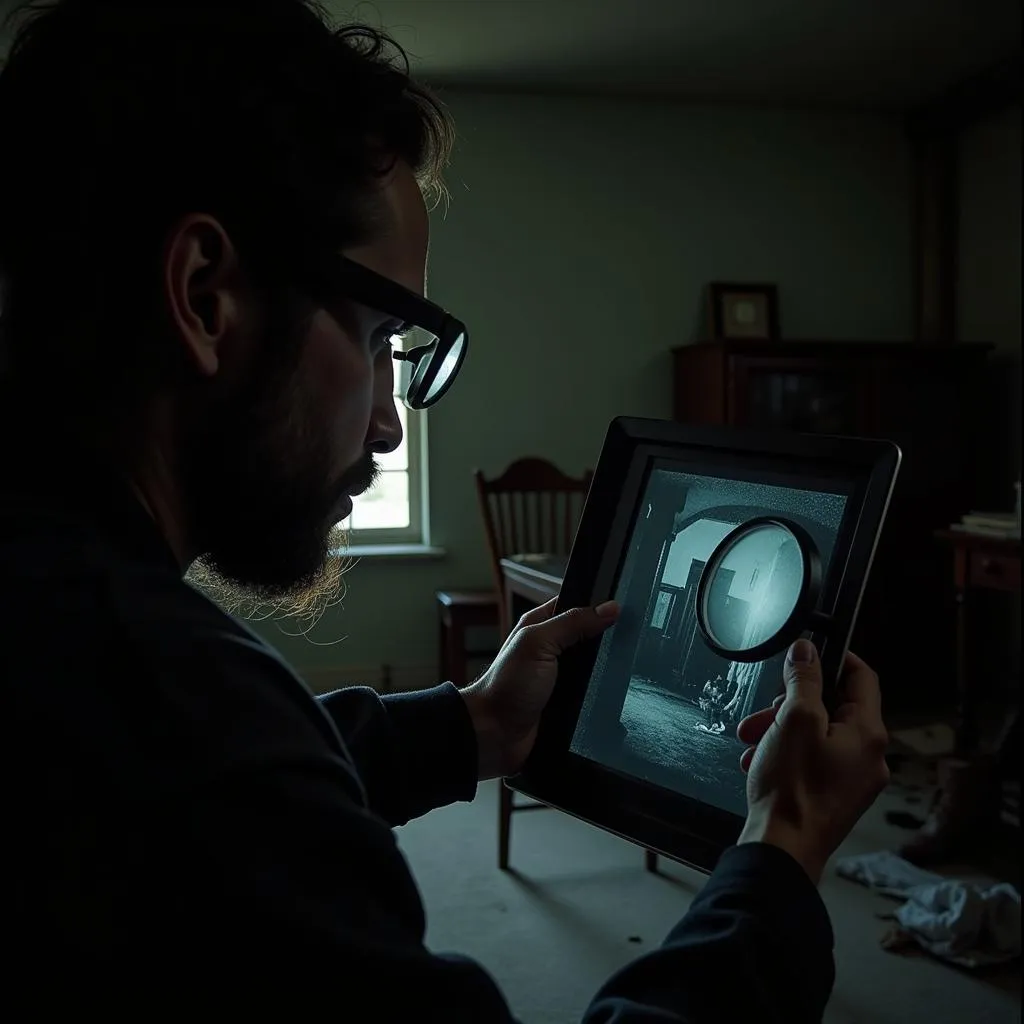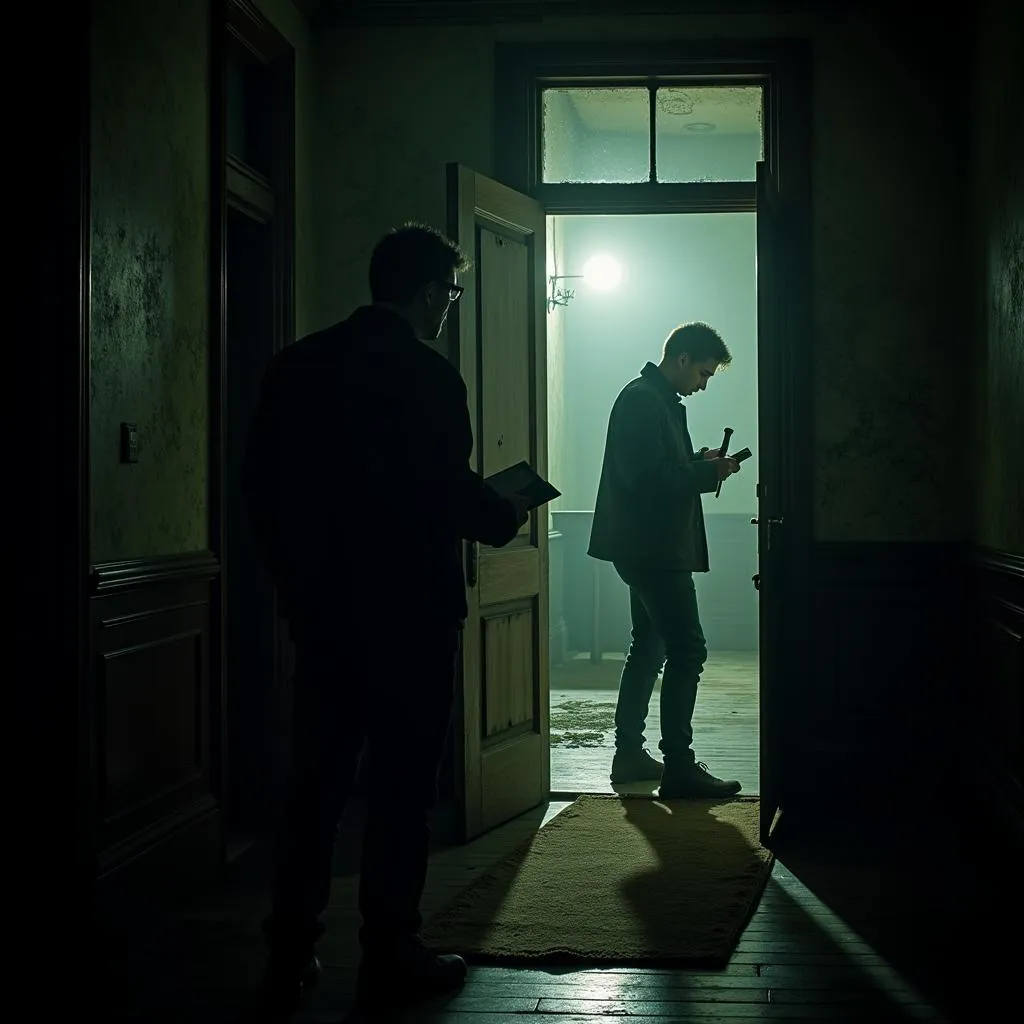The world is a fascinating place, full of mysteries and wonders that science has yet to fully explain. From ghostly apparitions to unexplained phenomena, the realm of the paranormal has captivated humanity for centuries. For those seeking to delve deeper into this enigmatic world, understanding the intricacies of paranormal research is essential. In this comprehensive guide, we’ll explore the fascinating world of paranormal research, highlighting key areas of expertise and providing practical insights for those interested in unraveling the secrets of the unexplained.
The Allure of the Unknown: Why People Seek Paranormal Research Expertise
The appeal of paranormal research stems from a fundamental human desire to understand the unknown. Whether it’s a fascination with the afterlife, a yearning for connection with the unseen, or simply a thirst for knowledge, individuals are drawn to the intriguing possibilities that the paranormal presents.
This pursuit of knowledge extends beyond mere curiosity. It involves a quest for answers, a longing to bridge the gap between the tangible and the intangible. Many seek to understand their own experiences or those of loved ones, seeking solace and closure through a deeper understanding of the supernatural.
The Essential Components of Paranormal Research Expertise
To embark on a journey into the realm of paranormal research, it’s crucial to have a firm grasp on the core principles that guide this field. These principles, akin to the compass and map of a seasoned explorer, provide a framework for navigating the complexities of the paranormal.
1. The Scientific Method: A Foundation for Rigorous Investigation
At its core, paranormal research relies on the scientific method, a time-tested approach to investigating phenomena. This method involves the following steps:
- Observation: Carefully and objectively documenting any unusual events, occurrences, or experiences. This includes taking detailed notes, photographs, recordings, and even conducting witness interviews.
- Hypothesis: Developing a tentative explanation for the observed phenomena based on available evidence and existing knowledge.
- Experimentation: Designing and conducting controlled experiments to test the hypothesis. This involves creating a controlled environment, eliminating potential sources of error, and meticulously recording data.
- Analysis: Analyzing the data collected during experimentation to determine whether the results support or refute the hypothesis.
- Conclusion: Drawing conclusions based on the analysis, acknowledging limitations and potential areas for further investigation.
By adhering to this systematic approach, researchers strive to minimize bias, maximize objectivity, and ensure that their findings are as reliable as possible.
2. The History of Paranormal Research: A Tapestry of Exploration
Understanding the history of paranormal research provides valuable context for contemporary investigations. It offers insights into the evolution of theories, methodologies, and the societal factors that have shaped the field over time.
From the early ghost hunters of Victorian England to the modern-day investigators utilizing cutting-edge technology, the history of paranormal research reveals a rich and diverse tapestry of inquiry. By examining past investigations, we can learn from successes, failures, and the evolving perspectives that have shaped our understanding of the paranormal.
3. The Tools and Techniques of Paranormal Research: A Diverse Toolkit
Paranormal research involves a diverse toolkit of tools and techniques, carefully chosen to gather evidence and analyze the data. These tools can be categorized into the following groups:
- Sensory Tools: Utilizing human senses and the power of observation to detect unusual phenomena. These include:
- Visual Observations: Observing changes in light, shadows, or unusual visual patterns.
- Auditory Observations: Detecting unusual sounds, EVPs (electronic voice phenomena), or unexplained noises.
- Tactile Observations: Feeling temperature changes, pressure, or physical sensations.
- Technological Tools: Utilizing scientific instruments to gather data, including:
- Electromagnetic Field Meters (EMF): Measuring electromagnetic fields, which can be disrupted by certain paranormal activity.
- Thermal Imaging Cameras: Detecting temperature fluctuations, which can indicate the presence of heat sources or cold spots.
- Audio Recorders: Capturing EVPs or other unusual sounds.
- Video Recorders: Documenting events, capturing visual evidence, and analyzing footage for anomalies.
- Other Techniques: Employing methods like:
- Spirit Boxes: Devices that scan radio frequencies to detect potential voice communications.
- Pendulums: Used in dowsing, a practice of searching for hidden objects or water sources.
- Ouija Boards: A form of divination, though often controversial due to potential risks.
It’s important to remember that the use of any specific tool or technique should be chosen based on the specific investigation and aligned with the principles of scientific inquiry.
4. Critical Thinking and Skepticism: A Necessary Balance
While the pursuit of paranormal research is driven by a desire to understand the unexplained, it’s equally important to maintain a critical and skeptical perspective. This means approaching every investigation with a healthy dose of skepticism, questioning assumptions, and considering alternative explanations.
“The most important quality for a paranormal researcher is a healthy skepticism. It’s not about disbelieving; it’s about being open to the possibility while rigorously scrutinizing evidence.”
Dr. Emily Carter, Paranormal Researcher and Professor of Psychology
This skeptical approach helps to avoid drawing premature conclusions, filtering out bias, and focusing on gathering objective data. It ensures that investigations are conducted with intellectual integrity and avoid falling prey to wishful thinking or confirmation bias.
5. Ethical Considerations: Navigating the Moral Landscape
Paranormal research raises complex ethical questions, especially when dealing with sensitive topics like the potential for contact with spirits or entities. It’s essential for researchers to adhere to a strict ethical framework, which includes:
- Respect for the Deceased: Treating the deceased with dignity and avoiding any actions that could be disrespectful or disruptive.
- Informed Consent: Obtaining informed consent from participants, especially when conducting experiments or using sensitive methods.
- Privacy and Confidentiality: Protecting the privacy of participants and ensuring that any collected data is treated with confidentiality.
- Professional Integrity: Maintaining professionalism throughout investigations, avoiding sensationalism, and presenting findings objectively.
Adherence to these ethical principles ensures that research is conducted responsibly and contributes to a positive and respectful approach to exploring the paranormal.
The Future of Paranormal Research: An Evolving Landscape
Paranormal research is an ever-evolving field, influenced by scientific advancements, cultural shifts, and the ongoing quest for understanding the mysteries of the unknown.
1. The Impact of Technology: New Tools, New Possibilities
Technological advancements are transforming the way paranormal researchers gather and analyze evidence. Advanced cameras, audio recording devices, and software for image and sound analysis are providing researchers with more sophisticated tools to detect and document unexplained phenomena.
“Technology is offering paranormal research a new set of eyes and ears, allowing us to explore the unseen with greater precision and clarity.”
Dr. James Thompson, Paranormal Researcher and Technology Specialist
This integration of technology is creating new avenues for investigation, unlocking possibilities that were previously inconceivable.
2. The Role of Social Media: Connecting Communities, Sharing Insights
Social media platforms have become an invaluable resource for paranormal researchers, connecting communities, sharing information, and fostering collaboration. Online forums, groups, and social media pages allow researchers to network, share experiences, and discuss theories.
This online community provides a platform for knowledge exchange, allowing individuals to connect with others who share their interests, learn from each other’s experiences, and contribute to a growing body of knowledge.
3. The Pursuit of Evidence: Beyond the Speculative
While paranormal research continues to explore the unexplained, there’s a growing emphasis on gathering solid evidence that can withstand rigorous scientific scrutiny.
“The future of paranormal research lies in moving beyond mere speculation and focusing on accumulating evidence that can be objectively analyzed and interpreted.”
Dr. Sarah Adams, Paranormal Researcher and Advocate for Evidence-Based Research
This shift toward evidence-based research strengthens the credibility of the field and contributes to a more robust understanding of the paranormal.
Conclusion: Embark on Your Own Paranormal Research Journey
The pursuit of paranormal research is an exciting and often challenging endeavor. But by understanding the essential components, embracing the tools and techniques, and adhering to a rigorous approach, individuals can embark on their own journey into the realm of the unexplained. Remember, a healthy dose of skepticism, a commitment to ethical conduct, and an openness to the possibilities are key to navigating this fascinating and enigmatic world.
“While the unknown may seem daunting, the pursuit of paranormal research offers a chance to explore the limits of human understanding and unlock the secrets of the world around us.”
Dr. David Wilson, Paranormal Researcher and Author
Whether you’re seeking to understand your own experiences, contribute to the growing body of knowledge, or simply explore the captivating mysteries of the paranormal, remember that the quest for understanding is a journey filled with intrigue, wonder, and endless possibilities.
 A Paranormal Researcher at Work
A Paranormal Researcher at Work
Frequently Asked Questions (FAQ)
- Q: What qualifications are needed to become a paranormal researcher?
- A: While formal qualifications vary, most researchers possess a strong background in science, psychology, or history, coupled with critical thinking skills and a genuine interest in the paranormal.
- Q: What are some common misconceptions about paranormal research?
- A: Common misconceptions include believing that all paranormal researchers are “ghost hunters” or that paranormal activity is always malicious. The reality is that research encompasses a wide range of phenomena and is often driven by curiosity and a desire to understand the unexplained.
- Q: Are there any potential risks associated with paranormal research?
- A: While most investigations are safe, there are potential risks, especially when working with sensitive locations or utilizing certain methods. Researchers should prioritize safety, informed consent, and ethical practices.
- Q: How can I get involved in paranormal research?
- A: Start by researching reputable organizations, joining online communities, and attending workshops or conferences. Many organizations offer opportunities for volunteers or newcomers to participate in investigations.
- Q: What resources are available for learning more about paranormal research?
- A: There are numerous books, documentaries, and online resources available. Consider researching reputable authors, organizations, and websites specializing in paranormal research.
- Q: Are there any ethical considerations when conducting paranormal research?
- A: Yes, ethical considerations are paramount. Researchers should always prioritize respecting the deceased, obtaining informed consent, protecting privacy, and maintaining professional integrity.
Remember, the world of the paranormal is a captivating realm of mystery and intrigue. By embracing a curious mind, a commitment to rigorous investigation, and a deep respect for the unknown, you can embark on your own journey into the fascinating world of paranormal research.
 The Paranormal Researcher's Journey
The Paranormal Researcher's Journey
If you have any further questions or require assistance with Paranormal Research, please don’t hesitate to contact us. We have a team of experts dedicated to providing support and guidance.